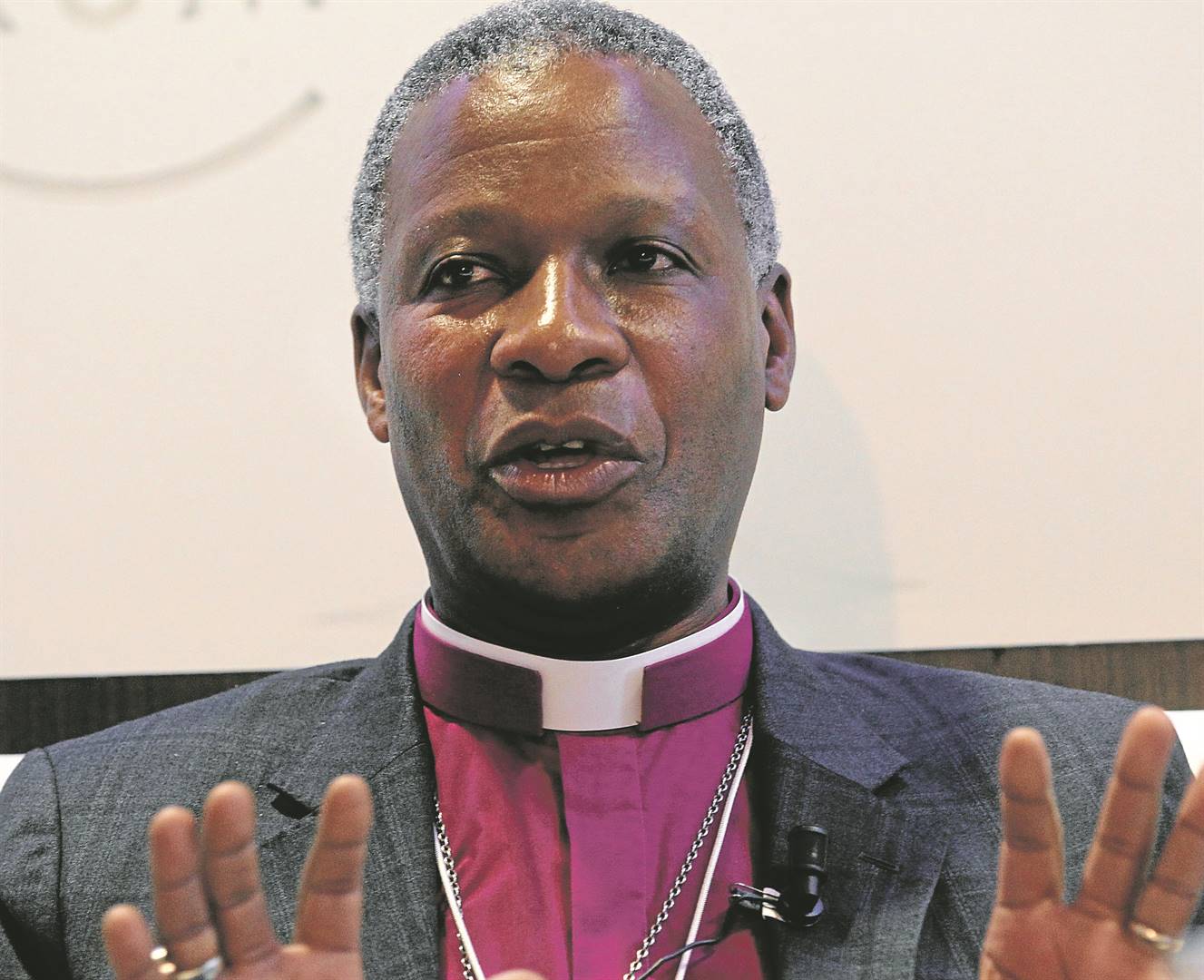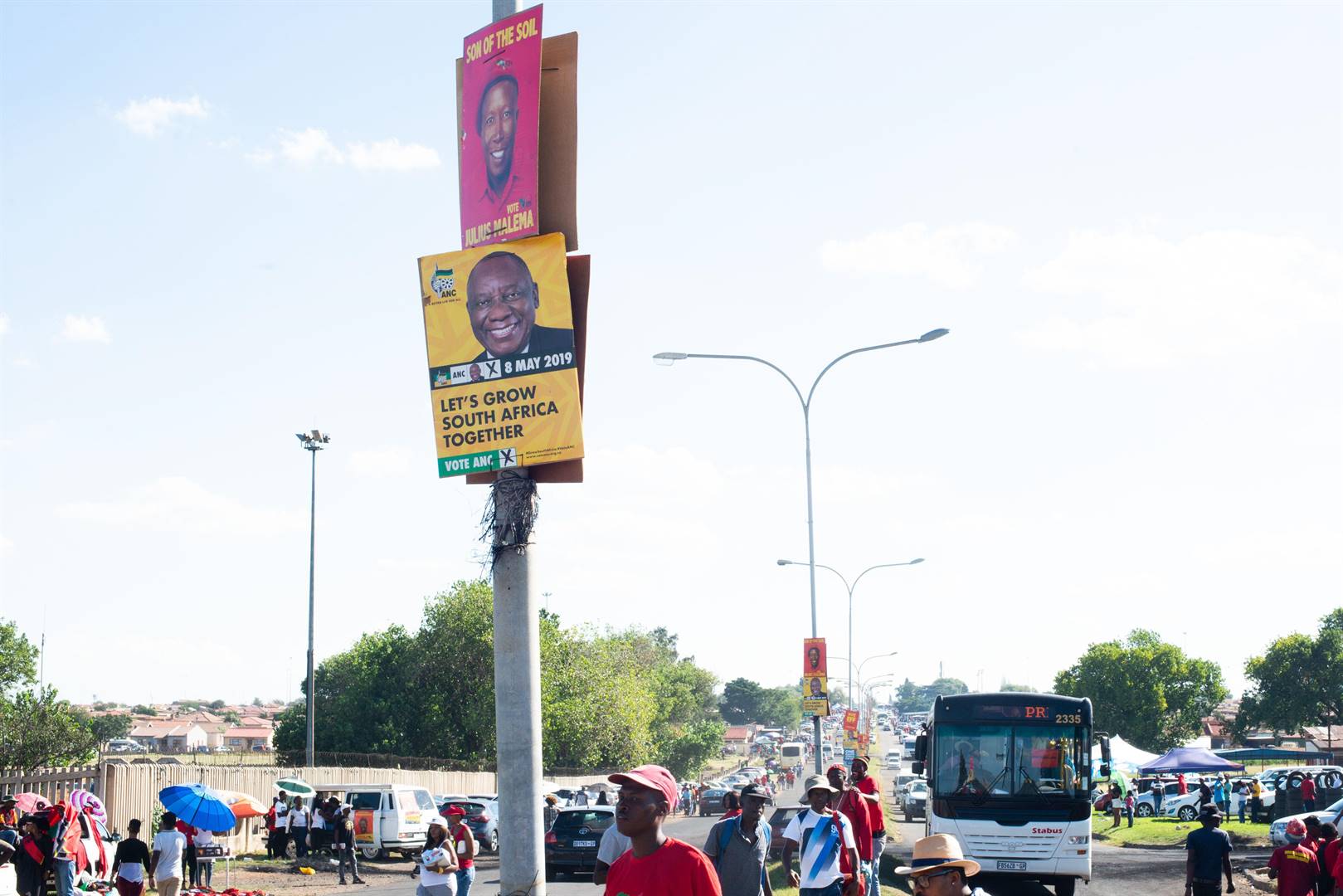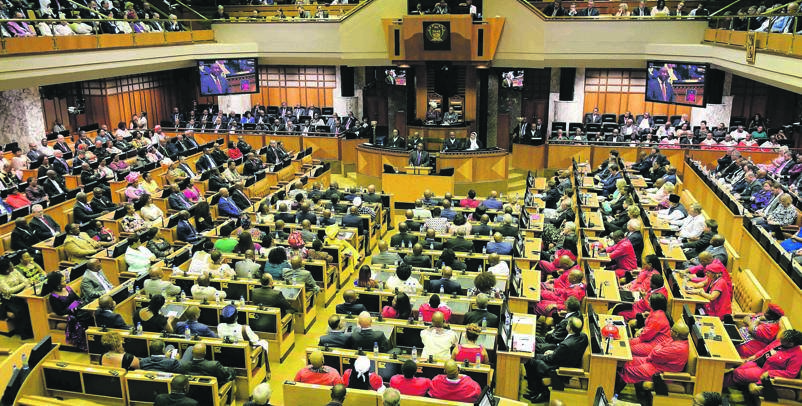
To build Parliament into a strong institution which holds the executive to account, we should vote on May 8 with the aim of transforming the institution
I hope that all South Africans are as optimistic as I am about today and the future of South Africa.
Call me a slave to hope amid the growing global trend towards the contrary, but the detail and spirit of Easter renews my heart and resolve.
Of course this Easter we hear the cry that comes out of the darkness of our nights.
It is a cry echoed in the voices of those caught up in the crossfire of taxi violence and gang warfare; it is echoed in the wailing of the poorest communities of Mozambique, Malawi and Zimbabwe, displaced by Cyclone Idai and rendered wanderers in their own land while leaders quibble about climate warming; and it is echoed in the cries of the forcibly displaced Rohiynga people in Bangladesh and in the cries of Palestinians trapped in that open-air prison called the Gaza Strip, subjected in the past weeks to aerial bombardment.
In the darkness we hear, too, the terrified cries of the 44 women and girl children raped every hour in South Africa and the cries of the people of Joe Slovo in Cape Town.
And when we hear from commissions of inquiry what was stolen from the poor of this country by those we trusted so much, the cries are ours too.
But Easter also carries an alternative narrative. A narrative of light against darkness, a narrative of hope, restoration, renewal and salvation.
I recall vividly how, during Easter plays at my primary school in Alexandra township, the curtains would be drawn until the moment someone entered with a candle and then the teacher would sweep open the curtains and declare: “Easter has burst into this darkness.”
And just as the light of the resurrection bursts in upon us at Easter, I believe that in South Africa we are about to receive our second wind and that our forthcoming elections have the potential to be the genesis and catalyst of our nation’s renewal, thus writing the beginning of not only a new chapter in our history, but also an entire new book that will define our children’s and our grandchildren’s lifetimes.
In the darkness of segregation and discrimination, Nkosi Albert Luthuli refused to bow to the inevitability of the triumph of apartheid but nurtured a dream of a “home for all”.
In the gathering spiral of violence that engulfed Northern Ireland for so long, Mairead Corrigan Maguire and Betty Williams refused to bow to scepticism and the logic of revenge and together took a “first step to peace”.
Ultimately Luthuli, Williams and Maguire began to confront the darkness with small gestures but gestures pregnant with hope.
Just as Luthuli and other Nobel Peace laureates confronted the powers of darkness of their times, and brought light and hope, as we seek the risen light of Christ in the South Africa of today, we too can transform the upcoming elections into the most important moment in modern South African history.
On May 8 we are not voting for a party or a candidate. We are voting to put “yes” into our future.
The reality is that we have had to live through a horrendous period of “no”.
That is inevitable in life: on the way to “yes” there will sometimes be “noes”. The mistake that many of us have made is that in recent years we have become discouraged by the noes, have given up and have quit trying.
But we have to go through our closed doors before we reach our open doors. We have to get through our noes to get to our yeses.
And that’s the key. When you come to “no”, instead of being discouraged, the correct attitude is, “I’m one step closer to my yes”.
In past years at Easter I had warned against believing we will solve all our problems by replacing one president with another.
Changing individual leaders is no panacea for all that is wrong with governance in South Africa today.
Although President Cyril Ramaphosa has given us some of the hope and optimism I have referred to, he is not all-powerful.
He, too, can be replaced – and the events of the past 15 months have shown us that we cannot rely solely on changes in the presidency to turn our country around.
In South Africa today we face a New Struggle, a struggle about values and institutions rather than about personalities.
We need to build strong systems which cannot be undermined by one person or party’s whim.
If we want to ensure that government works to improve the lives of all our people, especially those of the poorest of the poor, we have to strengthen our institutions.
If we examine the state of health of the three main institutions of our government – the judiciary, the executive and the legislature – we see that the judiciary has performed well in the face of the challenges of the past decade.
In the past year the executive has begun to perform better, although there are areas in which improvements are needed and its performance in the future depends too much on the decisions of a single individual.
But we cannot say that Parliament has fulfilled its oversight obligations in the way we would expect in a healthy democracy.
With some exceptions, it has failed abysmally over the years to hold our government to account.
Too often, the behaviour of our parliamentarians has been disgraceful. I don’t exempt any of the major parties from this criticism.
All have been guilty on occasion of opportunistic stunts and shameful attacks. In the public mind, Parliament has become a place of spectacle instead of serious debate about the laws and policies needed to improve people’s lives.
Moreover, too many members of the governing party hold their leaders to account only when they sense the leader’s influence in their own party is ebbing.
So in the spirit of the new life that Easter promises us, let us as citizens in this democracy now act to reform and renew Parliament.
If we are to build Parliament into a strong institution which holds the executive to account, we should approach the election on May 8 with the aim of transforming the institution.
Sadly, the party list system stops us as voters from passing judgement in local constituencies on the performance of MPs responsible for the areas in which we live.
Instead I want to suggest that as responsible citizens we all examine carefully the complete list of candidates each party has drawn up.
Let us as active citizens examine all the names on the lists of all the parties and bring pressure to bear on parties to re-examine them.
Then let us cast our votes, not on the basis of blind party loyalty, but for the group of prospective parliamentarians we believe represents our values best and will act in the interests of the country as a whole.
My proposal is not aimed only at the ANC. It applies to all parties, for I haven’t seen anyone subject the lists drawn up by the DA, the EFF, or other parties, to the same scrutiny.
Our people deserve a Parliament made up of members of the highest moral calibre, whether in government or in opposition.
To elect anyone else to this sacred institution is to spit in the faces of our ancestors who have sacrificed their lives and their liberty for democracy.
May 8 is our “yes” moment. It is your opportunity to let your voice be heard.
When Election Day comes, we must all vote, including the many young people who are telling us they are too disillusioned with the way politicians behave to vote.
Simply stated, voting is an expression of our commitment to ourselves. Or, said another way, bad officials are elected by good citizens who don’t vote.
You must vote and you must vote for the party that you believe will finally bring to an end a system that promises equality but produces inequality.
You must vote for the party that you believe will create equality of opportunity.
And, most importantly, you must ask your heart as well as your head, which party will unquestionably remove violence as a way of achieving our objectives.
Makgoba is the Anglican Archbishop of Cape Town. This article is adapted from his Easter sermon, preached at St George’s Cathedral last night
TALK TO US
Have you scrutinised all the major parties’ lists? Do they live up to your expectations?
SMS us on 35697 using the keyword VOTE and tell us what you think. Please include your name and province. SMSes cost R1.50. By participating, you agree to receive occasional marketing material




 Publications
Publications
 Partners
Partners










